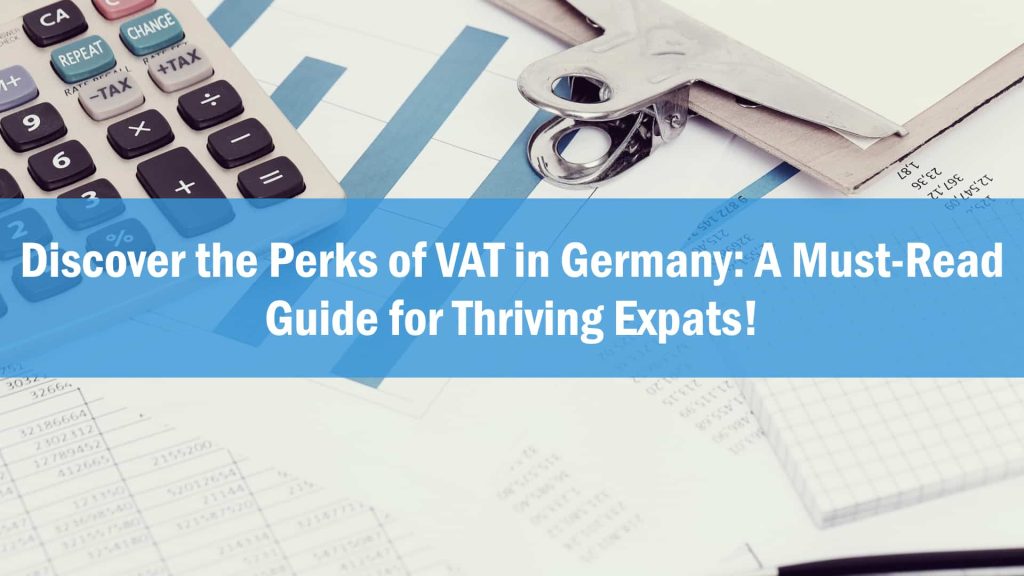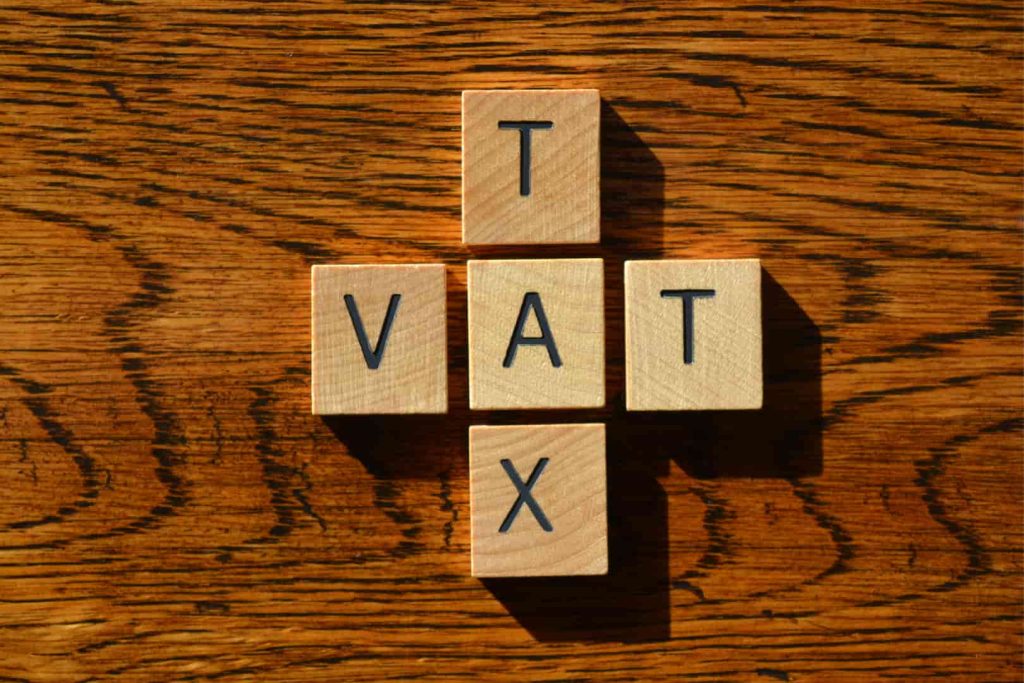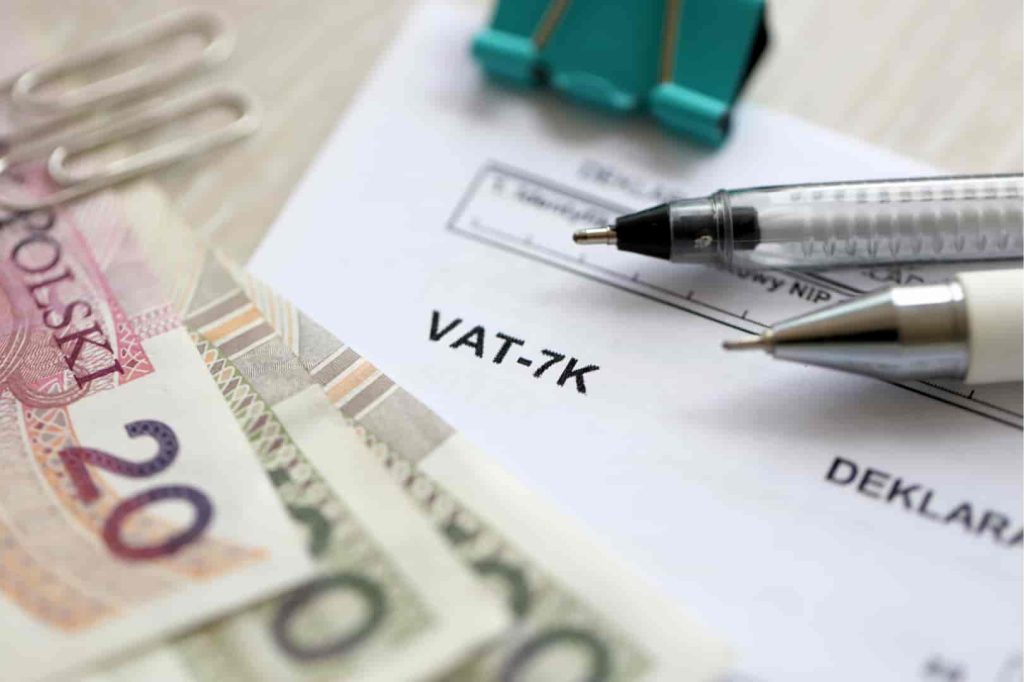
There are quite a lot of joys associated with moving to Germany, but there is one thing that might catch your eye in particular.
In this case, your wallet: VAT in Germany, short for Value Added Tax.
We know this is not a new phenomena, most countries across the world have their own system of VAT. Think of it as the government’s way of inviting itself to a slice of your shopping spree, dining out, or even that fancy new lederhosen purchase.
Learning to find your way through various VAT procedures is less about grappling with tedious tax codes and more about how to make your expat life smoother, and dare we say, a bit richer.
We’ll delve into the fundamentals of VAT in Germany, what it really is, how it works, how it contributes to improvement of public services and life (hello, efficient transportation!) and how it is calculated.
It doesn’t really matter whether you are an expat trying to make sense of your receipts or just curious about your spending contributes to the country’s infrastructure, having a good knowledge of where you are putting your money is key.
Make sure to read: A Quick and Simple 101 Guide to Vegan Dining in Berlin
Fundamentals of VAT in Germany
Value Added Tax, also known as Mehrwertsteuer (MwSt) in German, is a consumption tax that is often levied on the incremental value added to most goods and services at different stages of production. In Germany, any business that is registered for VAT must collect VAT on their sales and are entitled to deduct the VAT they pay on their purchases of raw materials.
Let’s take a quick look at the standard VAT rates in Germany
Standard rate: 19% – This applies to most goods and services.
Reduced rate: 7% – This applies to certain essential items like basic foodstuffs, books, newspapers, and cultural services like theatre and opera tickets.

What is the Scope of VAT in Germany?
VAT applies to most supplies of goods and services within Germany, regardless of whether the supplier is a resident in Germany or not. However, there are specific exemptions:
- Certain goods and services are exempt from VAT such as insurance services, healthcare and education. Essentially, most services that cater to the collective betterment of public well-being are exempt from VAT.
- Expats importing their personal belongings for their own use are generally exempt from VAT. However, if they do end up importing a car, they may still need to pay VAT.
Also read: 13 Stunning Facts on the German Education System
VAT Registration Requirements For Businesses in Germany
In Germany, unlike some other countries, where there are VAT thresholds, any business making taxable supplies of goods and services must register for VAT, regardless of their annual turnover. This includes both businesses selling within the country and having a permanent establishment in Germany (eg. branch office or warehouse) or making intra-community acquisitions of goods.
Process for VAT Registration for Businesses
The VAT registration process is a simple and straightforward one. It generally involves submitting a form that can be downloaded from the Federal Central Tax Office portal. You also have to show a few supporting documentation to the local tax office. These documents include:
- Completed VAT registration form.
- Company registration documents (articles of association, trade register excerpt).
- Proof of business activity in Germany (e.g., contracts, invoices).
- Evidence of VAT registration in your home country (if applicable).
- Power of attorney for a tax representative (if using one).

Businesses need to register for a VAT number for several important reasons. We have deduced the three main ones below:
- Charge VAT on their sales: This is crucial for claiming input tax credit (VAT paid on purchases).
- Deduct input tax: Businesses can reclaim VAT paid on business-related purchases, reducing their overall tax burden.
- Appear legitimate: A VAT number signifies a registered business, potentially boosting customer confidence.
VAT Reporting and Compliance in Germany
German businesses registered for VAT must file period VAT returns to report their taxable transactions and VAT liability. The filing frequency depends on the previous year’s VAT due:
Monthly filings: This is generally required for the first two years of registration and any subsequent year where the total VAT payable in the previous calendar year has exceeded €7,500.
Quarterly filings: The default option is the total VAT payable in the previous year was below €7,500 but above €1,000.
Annual filings only: Businesses with a total VAT payable of less than €1,000 in the previous year only need to file an annual return.
All VAT returns, regardless of filing frequency, are due by the 10th day of the month following the reporting period. An extension can be requested, but it usually requires a prepayment of VAT.
When filing for VAT returns, you will typically need some important information handy. This includes total sales and purchases, VAT charged on sales, input tax claimed and net VAT payable or refundable.
Input Tax Deductions in Germany for Businesses

Input tax refers to the VAT that a registered business pays on its purchases of goods and services used for business purposes. A few examples include VAT paid on office supplies, rent for business premises or travel expenses related to business activities etc.
Businesses registered for VAT can claim input tax deductions. This allows them to reclaim the VAT paid on their purchases, reducing their VAT liability. This claim is made by including the input tax amount in their period VAT returns.
Conditions for Input Tax Deductions
There are certain conditions for claiming input tax deductions:
- Direct Link to Business: The purchased goods or services must be used for the taxable supplies made by the business.
- Proper Invoices: Businesses must have valid invoices with proper details (including VAT amount) for the purchases they wish to claim input tax on.
- Partial Usage: If goods or services are used for both business and private purposes, only the portion used for business can be included in the input tax deduction.
What are the Benefits of VAT in Germany?
VAT plays a crucial role in Germany’s economy and public services:
- Revenue generation: VAT is one of the largest sources of tax revenue for the German government, contributing significantly to funding public services like education, healthcare and infrastructure, that Germany is so well-known for. This ensures a high standard of living for all residents, particularly expats.
- Transparency and neutrality: Honestly speaking, of all of the taxes levied in Germany, VAT is relatively transparent and neutral, as it applies to most goods and services at the same rate. It is not dependent on the income level of the consumer. This, in turn, promotes fair competition within the market.

- Export competitiveness: The VAT refund system allows businesses to claim back the VAT paid on exported goods, making German exports more competitive in the international market. This helps in building up the overall German economy and keeping the job market thriving.
- Access to quality public services: VAT revenue helps fund high-quality public services such as education, healthcare and transportation (all of which are either offered at subsidised rates or for free to residents).
We think you’ll love this: Everything You Need to Know About ‘Ruhezeit’ or the German Quiet Hours
Comparison Between VAT in Germany and Other Countries
Here, we have tried to offer a basic comparison between VAT in three different countries for a more nuanced understanding of how it works.
| Feature | Germany | US | India |
| Rate Structure | Standard (19%), Reduced (7%) | Varies by state (typically 5-10%), No federal VAT | National (18%), Multiple lower rates for specific goods |
| Administration | Complex, registration required for businesses exceeding thresholds | Simpler, businesses collect in states with sales tax | Complex, registration mandatory for most businesses |
| Exemptions | Healthcare, education, some financial services | Many basic necessities, clothing, prepared food | Education, basic necessities |
Don’t forget to read: Top 8 German Television Shows and German Cinema – Your New To-Watch List
How to Calculate VAT in Germany?
VAT calculations in Germany involves two main scenarios: finding the price including VAT (gross price) and finding the price excluding VAT (net price):
Finding the Price Including VAT (Gross Price):
Identify the VAT rate: Most goods and services have a standard VAT rate of 19%. Some essential goods have a reduced rate of 7%.
Multiply the net price by VAT rate:
For example, let’s assume that a jacket has a net price of €100. The standard rate of VAT, 19%, is levied on the jacket, you have to find 19% of €100, which is €19. This is your VAT amount.
Finally, add the net and vat prices together to get the gross price of the product, or the price you see written on labels at the store.
Here, it is €100 (Net price) + €19 (VAT) = €119 (Gross Price)

Finding the Price Excluding VAT (Net price):
Again, the first step involves identifying whether the product or service falls under the standard or reduced VAT rate.
Divide the gross price with 1 plus the VAT rate:
For example, a story book as a gross price of €23.80 and a reduced VAT rate of 7%. So,
€23.80 (Gross Price) / (1 + 7/100) = €22.34 (Net price)
There are not many differences between how VAT is structured and paid for residents and expats. However, there are a few situations where expats may be eligible for VAT refunds:
- Tourists: Tourists and visitors who are not residents of the European Union (EU) can claim VAT refunds on purchases exceeding a minimum amount (usually around €25) by following a tax-free shopping process. This generally involves retailers issuing special tax-free receipts and getting them stamped by customs upon departure from the EU.
- Relocation: Expats relocating to Germany with household goods may be exempt from VAT under specific conditions, so it is best to consult and arrange a meeting with customs officials beforehand.

VAT Implications for Expats in Germany
VAT adds a layer of consideration to the cost of living for expats in Germany including in the way in which we conduct our regular everyday expenses, housing, services availed etc.
- Increased costs: Since VAT is included in the displayed prices, most everyday purchases like groceries, clothing and utilities will be slightly more expensive in comparison to countries without VAT or with lower rates.
- Planning advantage: Knowing the VAT rates (standard 19%, reduced 7%) can help you budget effectively and even practise ethical spending habits.
- VAT on housing: Rent or purchase prices for housing typically include VAT. However, when buying property, a separate value-added tax on land also applies in addition to VAT.
- Compliance: Particularly meant for entrepreneurs and freelancers exceeding a specific annual turnover threshold (€17,500 in 2024) must register for VAT. This mainly involves collecting VAT on their sales, reporting it to the tax authorities and claiming VAT paid on business purchases.
- Record keeping: Maintaining accurate records of VAT paid and received is crucial for compliance and potential VAT refund claims.
Your recommended post for the week: The Essential Role of ‘Ordnungsamt’ in Local Neighborhoods

It is safe to say that VAT in Germany has the potential of increasing the cost of living for expats and residents. However, on the flip side, it also allows the government to maintain most of the services such as free education, healthcare and subsidised transportation, offering a good quality of life.
So the next time you are worried about insane prices of your regular, everyday purchases, remember, you are reaping the benefits for the same!
Disclaimer:
The information contained on this blog post regarding VAT in Germany is for informational purposes only and should not be construed as professional tax advice. Urban Ground is not affiliated with any government tax agency and does not provide tax or legal services.
For specific tax advice related to your situation, we highly recommend consulting with a qualified tax advisor or visiting the official website of the German Federal Central Tax Office (available in German and English).




